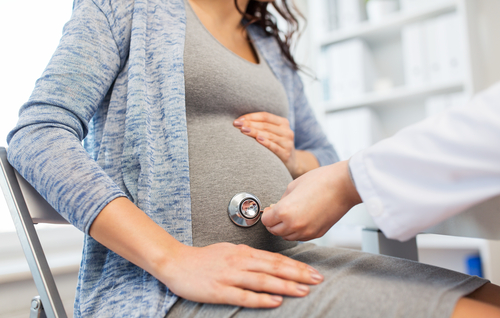Pregnancy, either naturally conceived or as a result of assisted reproduction technology, has become more common in women diagnosed with endometriosis. Still, studies indicate that endometriosis is a risk factor for adverse pregnancy outcomes and clinicians and specialists should be alert for these potential risks.
In an article titled “Pregnancy after endometriosis: a new challenge?” and published in BJOG: An International Journal of Obstetrics & Gynaecology, authors from Canberra Hospital in Australia compare historic papers with current studies and review what is known about gynecological complications during pregnancy in women with diagnosed endometriosis.
For decades endometriosis has been associated with infertility, but the increasing rate of pregnancies in women with this disease has raised awareness about its implications for pregnant women. Studies have associated endometriosis with several pregnancy complications, but these results have been inconsistent mainly because of the uncertainty of diagnosis.
Researchers found that studies as early as 1944 have reported the risk of gynecological complications during pregnancy in women with endometriosis. A study found that severe complications such as spontaneous rupture of the uterus, postpartum hemorrhage, and obstructed labor occurred in women who had adenomyosis growth of endometrium-like tissue in the uterine wall.
Although less common, pregnant endometriosis patients showed ruptured endometriotic cysts, ruptured ectopic pregnancies, and dystocia (obstructed labor).
A cohort study, “Pregnancy outcomes in women with endometriosis: a national record linkage study,” published at BJOG in February 2016, which followed Scottish endometriosis patients from 1981 to 2010, showed that they had poorer pregnancy outcomes.
Approximately 21 percent of the patients included in this study were able to conceive, but had increased risks of miscarriage, ectopic pregnancy, placenta displacement, unexplained antepartum hemorrhage, preterm birth, and postpartum hemorrhage. Other rare but more life-threatening situations were also reported in the course of the study.
“Modern day clinicians need to be aware of these [obstetric complications] when a woman with unexplained pain or bleeding presents in pregnancy,” the Australian authors wrote.
The cause of endometriosis and its full impact on pregnancy is still not fully understand. But endometriosis should be considered in differential diagnosis during pregnancy and proper care should be given to these women, the authors said.

